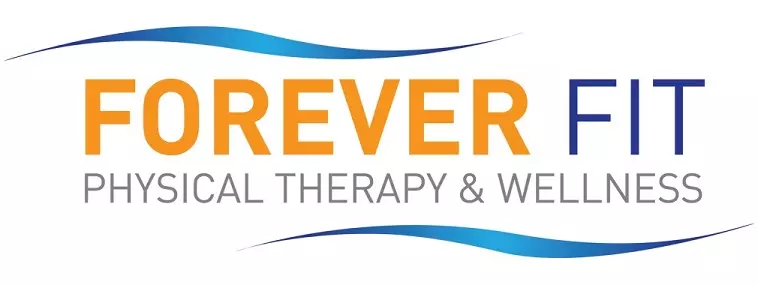Pregnancy can be a beautiful journey for many people. However, it can take a significant toll on the person’s physical health. A woman’s body gradually changes over the course of the pregnancy to accommodate the growth of the baby. These changes can often lead to aches and pains throughout the body, such as hip pain, making it difficult to carry out everyday tasks with ease.
More than 30% of women report experiencing hip pain during pregnancy; however, hip pain during pregnancy often goes hand in hand with pelvic pain. Hip pain often leads to pain in the pelvis, and pelvic pain may radiate to the hip. It’s also possible for sciatic pain to be mistaken for hip pain. So while many pregnant women may report hip pain, it’s possible that the main issue is stemming from a different area.
Read on to learn more about possible causes of hip pain during pregnancy as well as treatment options that can help.
Possible causes of hip pain during pregnancy
By gaining a better understanding of potential causes of hip pain during pregnancy, it’s easier to recognize when there may be an underlying issue that’s worth discussing with your health care providers.
Here are potential causes of hip pain that are common during pregnancy:
- Release of relaxin — During pregnancy, the body releases a hormone called relaxin, which works to loosen tendons and cartilage to prepare the body for childbirth, including helping the hips widen. Relaxin can lead to other issues that may be connected to hip pain, such as sacroiliac joint dysfunction and symphysis pubis dysfunction. Sacroiliac joint dysfunction refers to issues with the weight-bearing hip joints. Symphysis pubis dysfunction causes reduced mobility from pelvic bone separation.
- Weight gain — As both the woman and the baby gain weight during pregnancy, the body’s joints and bones take on more stress. Excessive pressure on both the hip joints and bones can lead to pain. The same stress can also lead to pain in the back and knees as the body tries to compensate for the additional weight.
- Postural changes — Branching off the previous point, the body changes of pregnancy cause your center of gravity to change, shifting forward and upward. This can lead to poor posture, such as slouching and a forward-tilting pelvis. These postural changes can lead to excessive strain on the hips, causing pain.
- Reduced activity level — When you’re pregnant, you likely have reduced your activity level due to fatigue and your growing belly. When you’re moving around less than your body is used to, or your body is at rest for too long, your hip muscles can weaken, leading to pain.
- Sleeping position — Everyone knows what it feels like to wake up with an ache after sleeping in an awkward or unsupportive position. This is especially true for those going through pregnancy, as they likely have had to change their normal sleeping position to accommodate their growing belly. For many pregnant women, this often means lying on their side, which can lead to hip pain.
Whenever you feel any sort of pain during pregnancy, no matter where it feels like it’s stemming from, be sure that you communicate your concerns to your obstetrician. They’ll help you determine the source of your pain, the potential cause, and how (or if) you can alleviate the issue. While many of the causes may come naturally from the pregnancy, such as weight gain and the release of relaxin, your doctor may still be able to suggest options to alleviate your hip pain.
Treatment for hip pain during pregnancy
When you’re experiencing persistent or worsening hip pain during pregnancy, talk to your doctor about safe and effective treatment. They can recommend some options that you can do on your own, as well as others that may require further assistance from a professional, such as a physical therapist.
Here are some safe treatment options for hip pain during pregnancy that are worth testing out:
- Additional support — There is plenty of supportive equipment that pregnant women can incorporate into their everyday life to reduce the strain on their hips, such as a pelvic belt. For hip pain linked to sleeping positions, pregnancy pillows can provide additional support to your hips while you rest, as well as to your back, knees and neck.
- Warm compress — Applying a warm compress to the area can temporarily alleviate hip pain. The warmth helps to improve blood flow to the area, relaxing the tight muscles and reducing pain. A warm bath can also be an effective way to reduce muscle tension during pregnancy. Avoid hot baths or whirlpools as they can raise body temperature too high for a pregnant person.
- Physical therapy — A physical therapist can also help you alleviate hip pain during pregnancy. They can show you exercises that will safely stretch and strengthen the affected muscles for increased hip support and flexibility. They can also help you make postural adjustments to reduce the strain being placed on your hips as you move throughout the day.
Forever Fit can help determine the cause and treatment for hip pain during pregnancy
While pregnancy can be such an impactful chapter of your life, it often comes along with many challenges that interfere with your overall quality of life, such as hip pain. The good news is that at Forever Fit, we can help you address issues like these and figure out the safest solutions.
We’ll help pinpoint the likely cause of your hip pain before designing a personalized treatment plan that can help. It may include options such as therapeutic hip exercises, soft tissue mobilization and pelvic floor exercises.
Contact our team today for more information or to schedule an initial appointment.

